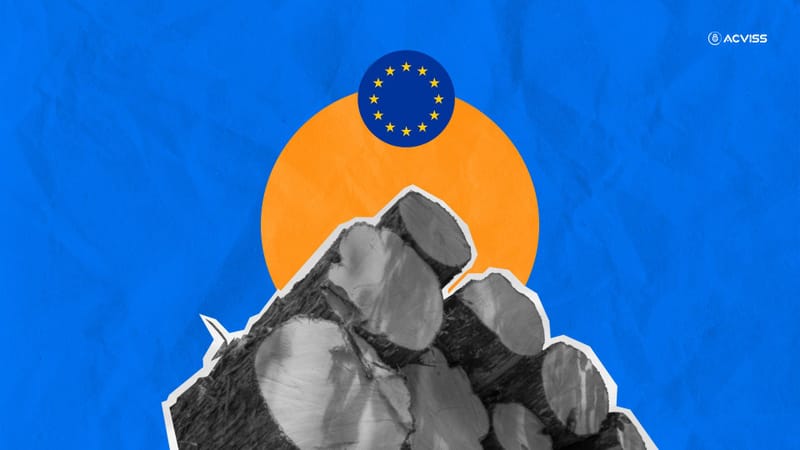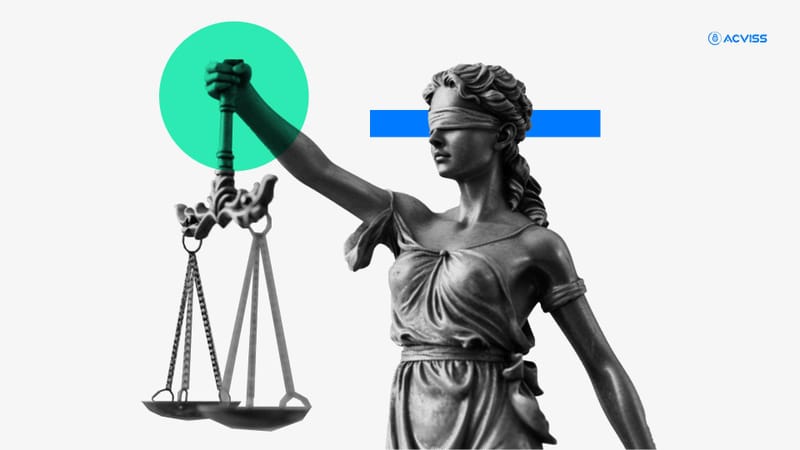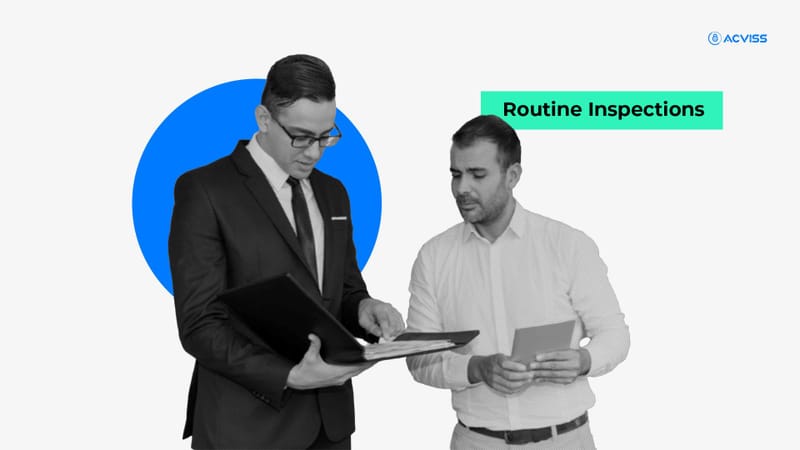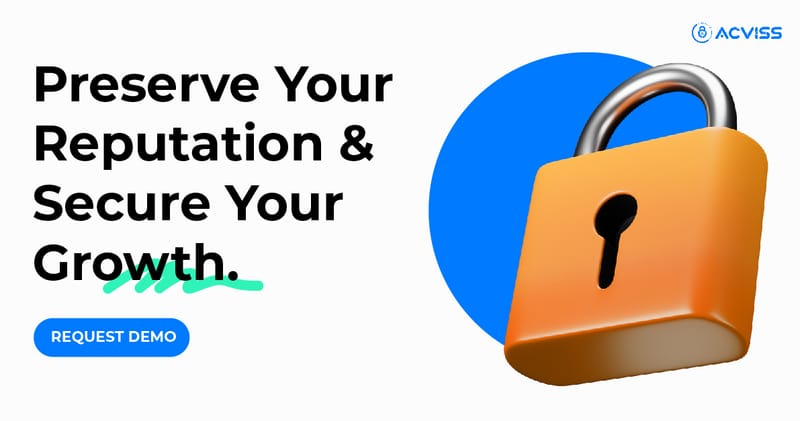10 Key Points on the New EUDR Deforestation Rules

Are you a coffee exporter or a seller of sustainably sourced furniture, or do you have any kind of business in the vast European market? If so, you might have heard some rumblings about a new regulation called the EU Deforestation Regulation (EUDR).
The EUDR is a game-changer for businesses that operate in the European market or have an exporting business of certain goods to the European Union. It's designed to tackle deforestation and ensure that products reaching European consumers are produced with sustainability in mind.
So, why should you care about the EUDR? Here's the bottom line: if you want to keep your business in the EU, understanding and complying with this regulation is crucial. Not following the rules could mean getting shut out of this massive European market.
10 Key Points You Need to Know about the EUDR.
By the way, hold on to the blog till the end. We have a bonus point lined up just for you!
1. Scope of the EUDR: Products Covered
As per EUDR regulation, goods commonly associated with deforestation are mainly its target. This includes:
- Coffee
- Cattle
- Soy
- Palm Oil
- Wood
- Cocoa
- Rubber
Not only these commodities but also products derived from these commodities are under the scope of EUDR.
For Example - Furniture, chocolate, coffee, etc.
Any commodity or derived products made out of the said commodity that is cultivated from the deforested land will not be allowed to be sold in the European market. Here is another important thing: as per EUDR regulation, land that is deforested after 2020 will be considered deforested land.
It's important to note that specific applicability varies depending on the product. For example, the EUDR applies to coffee and soy produced after June 29th, 2023, while wood products made before that date have a different deadline.
2. Consequences of Non-Compliance
Failing to comply with the EUDR can bring about significant consequences that no business can afford to ignore.
- Hefty Fines: Your business could face fines of up to 4% of your total EU turnover. This isn't just a slap on the wrist—it can severely affect your profitability.
- Market Access Ban: Non-compliance could lead to a complete ban on selling your products in the EU. Losing access to this vast market would mean a substantial loss of potential customers and revenue.
- Government Contracts: You could also be excluded from government contracts and funding opportunities, further narrowing your business prospects.
- Beyond financial losses: Non-compliance can seriously harm your brand's reputation. The resulting consumer backlash can have lasting effects, making it even harder to recover and rebuild trust in your products and services.
3. Forest Degradation and Lawful Deforestation
The EUDR regulation doesn't just target illegal deforestation. It also covers forest degradation, which occurs when the value and function of a forest are reduced over time. This could be due to factors like selective logging, forest fires, or even climate change.
But here's the twist: The EUDR also allows for "lawful deforestation." This means that some deforestation may be legal under specific circumstances, such as for infrastructure development or to protect public health. However, even lawful deforestation must comply with strict environmental and social standards.
So, while the EUDR aims to reduce deforestation, it recognizes that there may be legitimate reasons for clearing forests. The key is to ensure that these activities are carried out sustainably and responsibly.
4. Compliance with Local and Regional Laws
The EUDR doesn't just require businesses to comply with EU regulations. It also mandates that production sites adhere to local and regional laws. This means that your suppliers and partners must ensure their operations are legal and sustainable according to the laws of the countries where they operate.
This is important because deforestation often occurs at the local level, and local laws play a crucial role in regulating land use and protecting forests. By ensuring compliance with local laws, businesses can help prevent deforestation and demonstrate their commitment to sustainability.
5. Production Today Influences Compliance Tomorrow
One of the most interesting aspects of the EUDR regulation is that it looks beyond the present. The regulation recognizes that today's production practices can have a significant impact on future compliance.
This means that even if your products are currently deforestation-free, you still need to be mindful of how your suppliers and partners are operating. If they are clearing forests or engaging in unsustainable practices, it could put your business at risk in the future.
Therefore, it's important to maintain a proactive approach to EUDR compliance. Regularly review your supply chain, assess risks, and take steps to ensure that your suppliers are meeting the necessary standards.
6. Primary Responsibility Lies with the Market Entrant
When it comes to EUDR compliance, the buck stops with the business that places the product on the EU market. This means that even if you're not directly involved in the production process, you're still responsible for ensuring that your products comply with the regulations.
This doesn't mean you have to do all the heavy lifting. You can delegate some of the responsibilities to your suppliers or partners, but ultimately, you're the one who will be held accountable.
7. Due Diligence Statement (DDS) and Supplier Information
A crucial aspect of EUDR regulation compliance is the Due Diligence Statement (DDS). This is a document that outlines the steps you've taken to ensure that your products are deforestation-free.
The DDS should include information about your supply chain, the risk assessments you've conducted, and the measures you've implemented to mitigate risks. You'll also need to provide details about your suppliers, including their names, locations, and any relevant certifications.
By preparing a thorough DDS, you can demonstrate your commitment to EUDR compliance and reduce your risk of penalties.
Must Read: Guide to EUDR for Operators and Traders
8. Routine Inspections by National Agencies
To ensure compliance with the EUDR, national agencies in EU member states will conduct regular inspections of businesses that place products on the EU market. These inspections can be unannounced and may involve checking documentation, visiting production sites, and verifying supply chain information.
It's important to be prepared for EUDR audits and have all the necessary documentation readily available. By maintaining accurate records and being transparent about your supply chain, you can minimise the risk of non-compliance.
9. Private Investigations: A Potential Threat
While national agencies conduct regular inspections, it's also possible that your business could be subject to private investigations. This means that individuals or organisations may investigate your supply chain to identify any potential violations of the EUDR.
These investigations can be initiated by NGOs, journalists, or even competitors. While they may not have the same authority as national agencies, they can still cause significant damage to your reputation and business.
Therefore, it's important to maintain transparency and be prepared for potential investigations. By ensuring that your supply chain is deforestation-free and your practices align with the EUDR, you can minimise the risk of negative publicity and legal consequences.
10. Key Dates and Deadlines
Here are the key dates and deadlines for EUDR compliance:
- 2019: The EU starts planning the EUDR.
- 2021: The proposal for the regulation is adopted.
- 2022: The regulation is agreed upon.
- 2023: The EUDR becomes law on June 29th.
- 2024: Medium and large companies must comply by December 30th.
- 2025: Small and micro-sized companies must comply by June 30th.
- 2028: The regulation will be reviewed every five years starting June 30th.
It's important to note that these deadlines are subject to change, so it's always a good idea to stay up-to-date on the latest developments.
⭐ Bonus Point: Traceability
If you want to keep things smooth for EUDR, you can make use of technology for traceability purposes. You see, one of the major challenges is handling the supply chain effectively and tracking and tracing every aspect of the supply chain process. If you can do it effectively, it will not only help you comply effectively with EUDR regulations but will also prove to be a cost-effective and efficient method.
Origin by Acviss, track and trace every aspect and share detailed information about the entire journey of a product—from farm to table. It uses a blockchain system, making it more trustworthy as it is difficult for anyone, including the business owners themselves, to pamper with the data. It uses advanced technologies like satellite imagery, GIS, and blockchain that are essential for enhancing traceability. These tools provide detailed data and analysis, making it easier to monitor compliance and address any potential risks.
Get to know more about EUDR and how you can get compliant. Get in touch with our experts at Acviss to streamline your compliance process.



